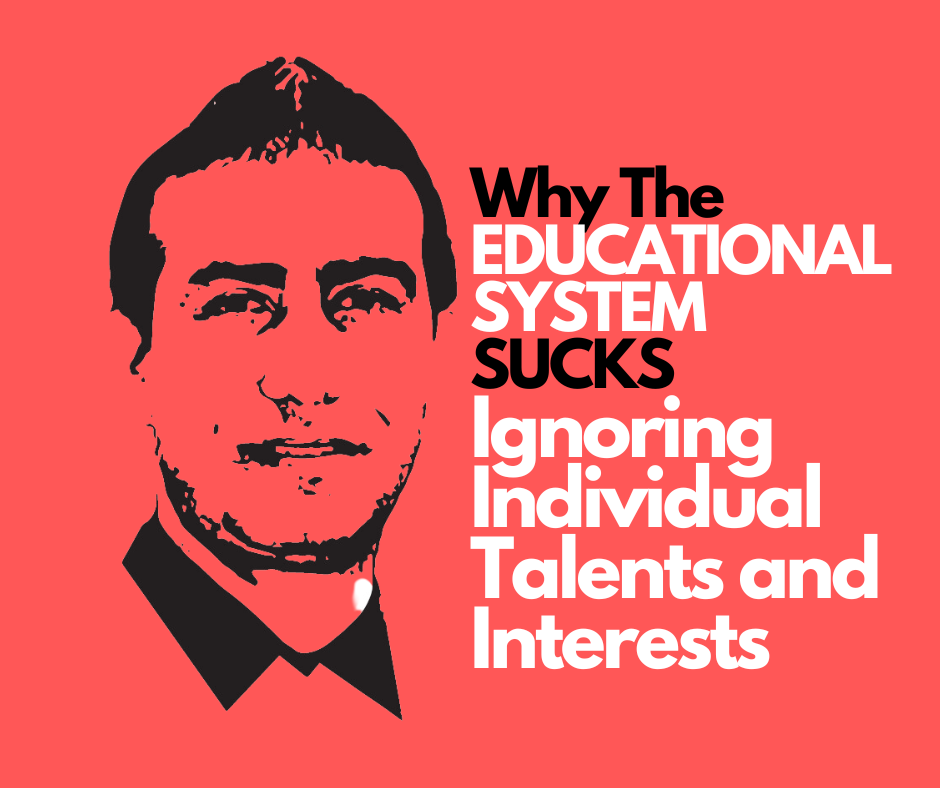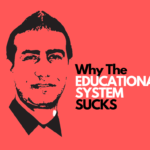Albert Einstein once famously said, “Everybody is a genius. But if you judge a fish by its ability to climb a tree, it will live its whole life believing that it’s stupid.” This quote perfectly encapsulates one of the major flaws in the current educational system. With a diverse student body, each with unique talents and interests, it is unjust and counterproductive to expect every student to fit into the same mold. Unfortunately, this is precisely what happens when we throw all students into one pot and teach them the same things. This flawed approach not only limits students’ potential but also leads to consequences such as misdiagnoses and missed opportunities.
In today’s educational system, we have X students with Y types of interests and Z different talents. Each student possesses a distinct combination of abilities and aspirations, yet they are all subjected to a standardized curriculum. This one-size-fits-all approach fails to recognize and nurture individual talents and interests. Students who excel in artistic pursuits, such as future designers, musicians, or actors, may find themselves struggling in subjects like history, math, or science. Their lack of interest or aptitude in these areas can lead to frustration, disengagement, and even misdiagnoses such as attention deficit hyperactivity disorder (ADHD) when, in reality, their minds are simply wired to thrive in different domains.
Consider the example of a student with a passion for sports, particularly football. This student possesses incredible athletic talents and dreams of pursuing a career in sports. However, due to the rigid educational system, they are required to sit through history classes or other subjects that do not align with their interests. As a result, they may struggle to pay attention and perform well academically in these areas. Unfortunately, the lack of understanding and accommodation for diverse talents can lead to misattributed labels and hinder the student’s overall development.
Similarly, another student with exceptional creative skills, destined to be a future designer, may face hurdles due to the educational system’s inflexibility. Their talents lie in areas such as art, design, and aesthetics. However, the system requires them to excel in subjects like religion, chemistry, and physics, which may not align with their passions or strengths. Their overall grade point average (GPA) may suffer, potentially closing doors to higher education opportunities, despite their immense potential and talent in their chosen field.
The consequences of this flawed educational system are far-reaching. Students who feel discouraged or misunderstood may lose confidence in their abilities and doubt their potential for success. They may be left feeling disillusioned, unfulfilled, and resentful toward the education system. Moreover, society as a whole suffers from the loss of diverse talents and the untapped potential that could contribute to innovation, creativity, and progress.
To address these issues, a fundamental shift in the educational system is necessary. Recognizing and embracing individual talents and interests should be at the core of this transformation. Students should be encouraged to explore and develop their unique strengths from an early age. Schools should offer a broader range of subjects and electives that cater to diverse interests, providing students with more opportunities to excel in their respective domains.
Additionally, flexible learning pathways should be established to accommodate different talents and aspirations. This may involve creating specialized programs or alternative educational tracks that focus on specific fields or skill sets. By providing options and tailored approaches, students can pursue their passions while also acquiring essential foundational knowledge.
Moreover, assessment methods should be revamped to reflect a more comprehensive and holistic understanding of students’ abilities and achievements. Relying solely on standardized tests does not effectively capture the full range of talents and skills possessed by students. Evaluations should include project-based assessments, portfolios, and real-world applications of knowledge to provide a more accurate representation of students’ capabilities.
In conclusion, the current educational system’s failure to recognize and nurture individual talents and interests undermines the potential of students and perpetuates a belief in their inadequacy. By embracing a more personalized approach to education, providing flexibility, and reevaluating assessment methods, we can create an educational system that celebrates the diversity of talents and empowers students to thrive in their unique fields. It is time to break free from the constraints of the “one size fits all” mentality and create an educational environment where every student can flourish and reach their full potential.




